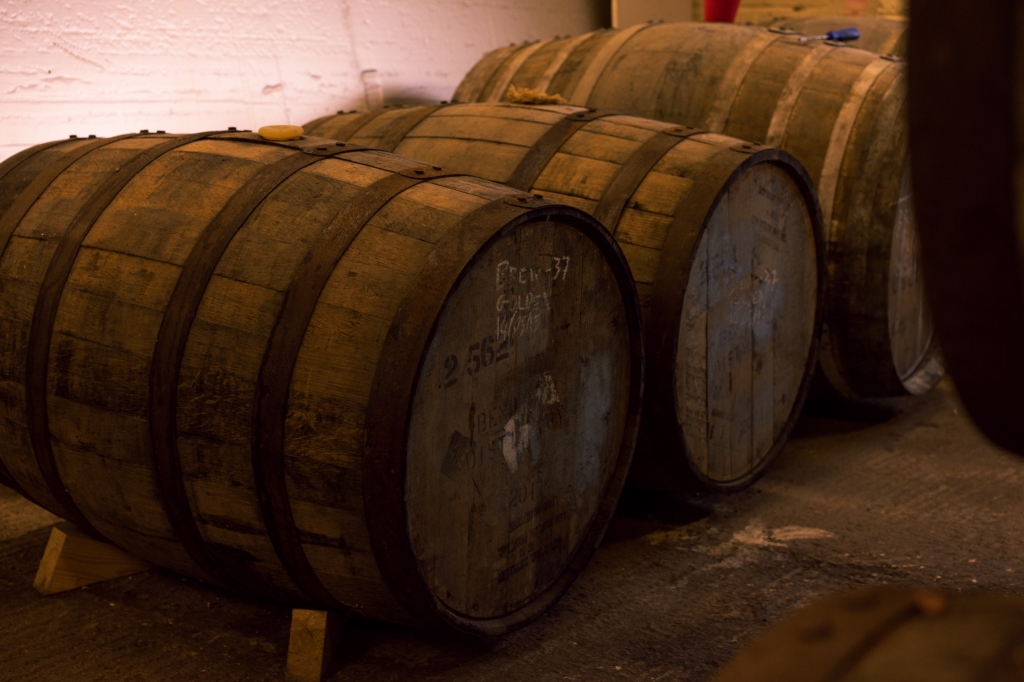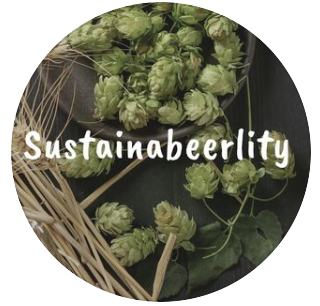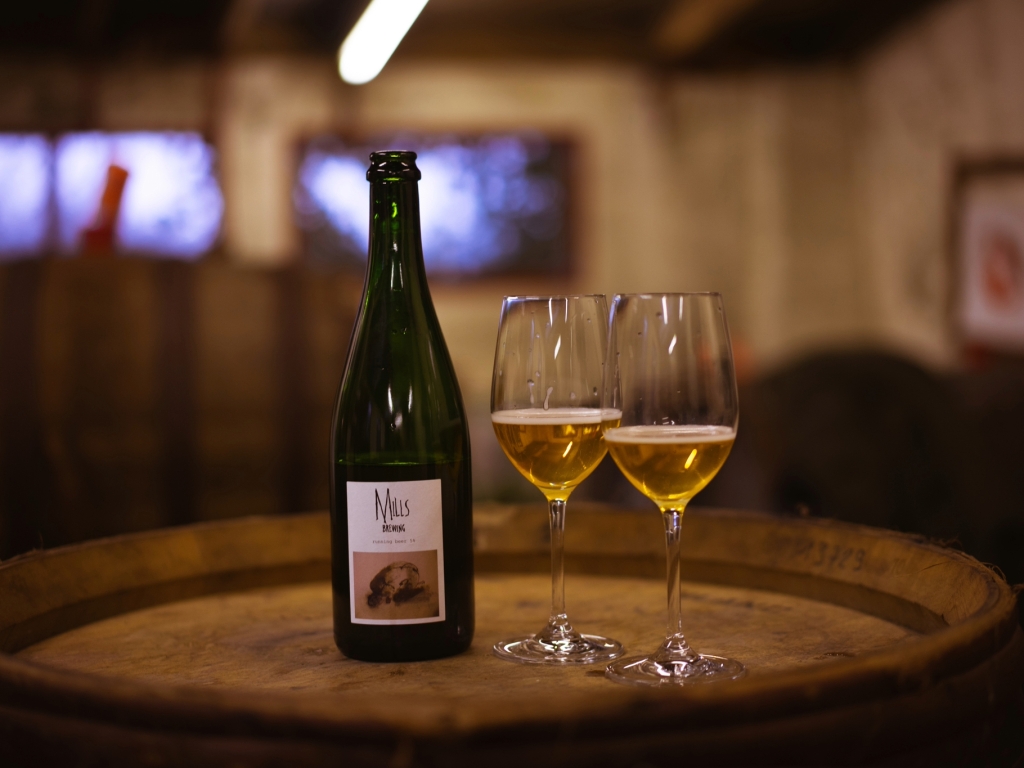Renowned as the birthplace of Edward Jenner, the pioneering figure behind the invention of vaccines, Berkeley in Gloucestershire (UK) is a market town located between Bristol and Gloucester. Today Berkeley is home to two individuals also well-known for their experiments with microbial-cultures: Gen and Jonny Mills.
I first met Jonny back in October 2023. Around 10 beers into my IMBC adventures, I bumped into James and Will of Balance Brewing. They were hanging out behind Jonny as he attended to his ever-growing thirsting queue. I had never tried a Mills beer before this moment; as I have noted many times on this blog, my deeper exploration of wild-fermented beers only really began after moving to Belgium back in 2020.
At some point during our conversation, James stated something along the lines of: “Mills are the best at what they do”. I had just spent the prior evening drinking with James and Will at their own taproom, so I knew what a compliment this had to be. Before I got a chance to ask Jonny for a glass in exchange for my diminishing tokens, he stated that he had to leave to give a talk. He turned and asked James and Will (and I executively decided myself by extension) to take-over his stand.
This was a quick-fire way to learn the beers being showcased – not only because I was now partly in-charge of pouring them, but because people were asking me for recommendations. I likely do not need to tell many here reading this, but James was right: these beers were exquisite. I interviewed Jonny late last year to learn more about the sustainability ambitions behind these fantastic flavours.

Both Gen and Jonny were brewers prior to the formation of Mills. Working in Bristol at the time, they decided that they would seek to open a premises of their own. In agreement with brewer and pub-owner, Pete Tiley, an individual well-known in the Gloucestershire area and beyond, Gen and Jonny were able to utilise the 2.5 bbl kit located at The Salutation Inn to brew their wort (Pete later helped the couple find their own premises).
“We didn’t have any capital, plus the beer takes 2-3 years to produce, so we kept our day jobs for the first four years until the business could pay its own and our bills”.
It was a slow start for newly formed Mills – but like the beers they produce, good things come to those with patience. The couple spent a year living above The Salutation Inn for cheap-rent, and a further year living in an on-site caravan in order to keep investing into the brewing.
For Mills, the allure of naturally fermented beers came from intrigue of the production process. The patience behind years of fermentation, the complexities imparted by wooden barrels, and the intricacies of blending. Beers of this kind transform the production process into a tapestry of flavours that develop over time – “all a far cry from ale/lager brewing”.

Jonny and Gen blend influences from both Belgian lambic brewers and the West Country cider producers of Britain in their craft. Jonny stated that their approach to wort production, fermentation, and blending all bear the mark of their early interactions with cider maker Tom Oliver.
“We use the phrase ‘minimal intervention’ regarding our approach to brewing”
This term is written on almost every site where Mills’ beers can be viewed or purchased… but what does it mean? First and foremost, Gen and Jonny decided that the naturally occurring flavour profiles they wished to see in their beers would only come from having as much of a hands-off approach as possible. This brewing method offers numerous sustainability benefits.

For the most-part, natural fermentation aligns perfectly with brewers’ aspirations for sustainability. Post-wort production, very little energy is required in Mills’ beers. For most brewers, a significant portion of their energy use is attributed to fermenters, cellars and warehouse cooling – something Mills can bypass. As Jonny stated himself: “we welcome in the seasonal temperature changes and work with them rather than against. We know our cooler and slower winter fermentations will produce different flavours to the warmer, faster summer ones, and we take that into account when designing beers.”
These styles not only lend themselves to nature, but their flavour profiles are dependent on it. The yeasts react to seasonal differences and impart complexities to the beer. Whereas IPAs can be brewed in any season, Mills’ need to carefully plan their production around the temperatures for the beer they want to bring to the market. Conversely, it does make their production ever more susceptible to volatile weather patterns as a consequence of climate change.
The flipside to naturally fermented beers is the fact that their complex flavour profiles rely on refermentation, due to a high level of carbonation once packaged. This means the wild-side of beer relies heavily on champagne bottling. In this moment I reflected on my in-depth discussions with Werner of 3 Fonteinen and how he wished to see the days where people were drinking lambic from cask return.
For highly carbonated beers such as Mills, the issue goes further than a longing desire to see people drinking these styles at the pub – the issue is far more practical. Whilst the same process is possible in keg, it is very difficult for most dispense systems to pour the beer at this level of carbonation. These beers age in bottles; they become a bartender’s nightmare in kegs.
Jonny stated that if/when Mills has its own tap-room, they look to design a system fitting their brewing process. Having a taproom and shifting a significant volume on-site is one of the more achievable sustainability targets for the brewery. Should their taproom come to fruition anytime soon, it would certainly not be a bad part of the world to find yourself given Gloucestershire’s rich beer scene.
A somewhat less-known story in this brewery is the fact that all the artwork on the bottles’ labels has been illustrated by Gen’s dad, Martin Kaye. Well, actually, all except one: Twig, a beer label that boasted the work of Jonny’s uncle, Peter Mills. Is this a sustainability story? Not quite. But it is a story worth telling.
This side of the brewery paints a beauty that runs deeper than the beer itself. Mills evokes images of flourishing gardens bordered by cobweb ridden stone walls, the aromas of wooden barrels, family joy, starry nights and the glare of summer sun. From sleeping in caravans and pubs, there is a humbleness behind Mills that is perfectly contrasted with boldly nuanced beer. And this sentiment could not have been captured any better than Jonny’s answer to what his favourite thing about Mills today was: “being able to run the brewery with Gen”.
What’s your favourite beer?
It’s another win for De Ranke’s XX Bitter. What more can I say?
Where can people buy your beers?
At MillsBrewing.com you will find the ability to sign up their mailing lists that detail the timings for all their releases. Mills release a new beer roughly once a month, so go sign up! If you find yourself in the area, then head down to Salutation Inn (GL13 9QH)! You’ll be able to pick up some bottles here.
Photo Credits to Niall Kerry

